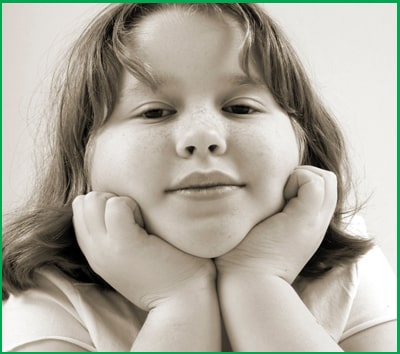
Research shows that obese young people have a significantly lower quality of life rating — the same quality of life rating as young cancer patients who are on chemotherapy. Ostensibly, the low quality of life of obese youth is due to their being obese (not being able to wear cool clothes, not getting a boyfriend/girlfriend, being teased, etc.). Healthy eating and exercise are the conventionally recommended solutions for this. Thus, if obese young people are truly miserable being obese, why don’t they simply eat healthy, exercise, lose weight, and not be miserable anymore? Obviously, something else is going on.
We’ve now completed two consecutive five-month studies with our app, involving 87 obese young people, many of them severely obese. The app’s approach is based on the addiction treatment model of withdrawal and abstinence from problem foods, snacking and excessive food amounts. Motivating these youth to actually engage and try the app was a daunting endeavor. Given the low quality of life rating of obese youth, one would think that they would jump at any chance to eliminate their obesity. This should be particularly true for a new approach that is different from healthy eating and exercise, with which they’ve not previously had success. Such was not the case with participants in our two studies. Most resisted the app intervention, several vehemently.
It’s difficult to distinguish willful pleasure-seeking with food versus true out-of-control eating and inability to change in obese young people.
The quandary is whether obesity is due to brain changes, which the individual cannot help, or is it a voluntary choice?
Several youths in our studies reported that they have been overweight so long that they are accustomed to it. They are fatalistic that they will always be that way and don’t know how to change. One 400-lb. 21-year-old stated that he didn’t care about being obese as a teen — he believed that he would never be thin — yet what finally motivated him to lose weight in our study was “not wanting to die from obesity.” A 287-lb. 17-year-old stated that he wouldn’t worry about health issues from his weight until he was an adult, and his current lack of concern was a “teenager thing.”
Most obese youth in our studies rated the question “How much does being overweight bother you?” as a 10 on a scale of 1-10 (1=least important, 10=most important) and their commitment to lose weight similarly. Even so, many became quite angry when asked to eliminate problem foods and especially to reduce the large food amounts to which they were accustomed. Several dropped out of the study as a result. Others would not admit what they were actually eating, adamantly claiming they were eating only small amounts, in spite of the fact that they continued to gain weight. When we confronted their claim as physically impossible, they accused us of calling them liars.
Why would obese young people so vehemently resist measures to decrease their obesity? The rub of course is that any approach requires decreasing food intake. It would seem that they fear loss of food more than they are bothered by being obese. Withdrawal symptoms (grouchiness, depression), tolerance (needing to eat more and more for the same effect), loss of a stress coping mechanism, and giving up food’s pleasure as their main relief from life’s pain are likely factors. Moreover, as with other addictions, obese youth may be compelled to overeat just to feel normal.
Your responses and feedback are welcome!
Image by LisaValder.

 FAQs and Media Requests:
FAQs and Media Requests: 











